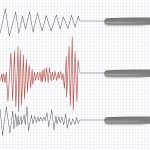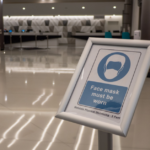From Cop to Crusader: The Man Who Beats Lie Detector Tests

It might seem strange that police would charge someone for training others to beat a polygraph test, rather than getting rid of the faulty method itself. But that is exactly what happened in the US, where former police officer Doug Williams has been sentenced to two years in prison for coaching people on how to “beat” polygraphs.
From Cop to Crusader to Convicted Criminal
The polygraph, or lie detector test, rose to prominence in the 1970s and is used in the US for everything from police interviews to job applications for private companies. Also during the 70s, Williams became a police officer and ended up carrying out a few of these tests himself. After seven years, he lost his faith in the accuracy of polygraphs, and ended up quitting his job as well.
On his website, Williams offers guides and private lessons on how to “beat” polygraph tests. His stated aim is to prevent innocent people from being incriminated by the unreliable tests, but it turns out that he may have helped guilty people as well.
In 2012, a police operation was launched into Williams’ services. An undercover operative claimed to be under investigation from the Department of Homeland Security for helping a friend sneak contraband into the country. That operative ‘admitted’ guilt to Williams, and advised that he intended to lie to police. Despite that information, Williams taught the operative how to beat the test.
Williams pleaded guilty in May to two counts of ‘mail fraud’ and three counts of ‘witness tampering’. He was sentenced to two years in prison.
According to his indictment, William committed three witness-tampering offences under 18 U.S.C. § 1512(2)(B), namely:
- Knowingly and corruptly persuading and attempting to persuade someone to conceal material facts and make false statements with the intent to influence, delay, and prevent their testimony,
- Inducing a person to withhold testimony, and
- Inducing someone to evade a legal process summoning that testimony.
Polygraphs in Australia
Like the US, Australia does not allow polygraph tests to be admitted as evidence in court.
In NSW, section 6(1) of the Lie Detectors Act 1983 (NSW) explicitly states that the output from a lie detector, and any opinion based on that output, is inadmissible in court.
Section 4 of that Act also prohibits the use of polygraphs in the context of:
- Employment,
- Assessing insurance policies or claims for insurance, and
- Establishing criminal liability.
The last heading effectively prohibits the use of polygraphs in police interviews.
Perverting the Course of Justice
Section 319 of the Crimes Act 1900 (NSW) says that:
“a person who does any act, or makes any omission, intending in any way to pervert the course of justice, is liable to imprisonment for 14 years”.
This is defined in section 312 as “obstructing, preventing, perverting or defeating” the course of justice or the administration of the law. It can include things like lying to police in a way that leads them to pursue a line of investigation that is a waste of their time, or giving a false medical certificate to get an adjournment of a hearing.
In addition to that general offence, there are many specific crimes relating to attempts to interfere with justice.
If polygraphs were legal in NSW, teaching another to circumvent them to get away with a serious offence would be captured by section 315(1)(b), which states as follows:
“315 Hindering Investigation etc
- A person who does anything intending in any way to hinder:
(a) the investigation of a serious indictable offence committed by another person, or
(b) the discovery of evidence concerning a serious indictable offence committed by another person, or
(c) the apprehension of another person who has committed a serious indictable offence, is liable to imprisonment for 7 years.”
A ‘serious indictable offence’ is one that carries a maximum penalty of 5 years of more.
In addition to this, section 317 of the Act states that “a person who, with intent to mislead any judicial tribunal in any judicial proceeding:
(a) suppresses, conceals, destroys, alters or falsifies anything knowing that it is or may be required as evidence in any judicial proceeding, or
(b) fabricates false evidence (other than by perjury or suborning perjury), or
(c) knowingly makes use of fabricated false evidence, is liable to imprisonment for 10 years.”
Consistent accounts of the unreliability of polygraph tests, and websites like Williams’, raise questions about whether such procedures should be used in the field of law enforcement in countries like the US, or in any field at all.






